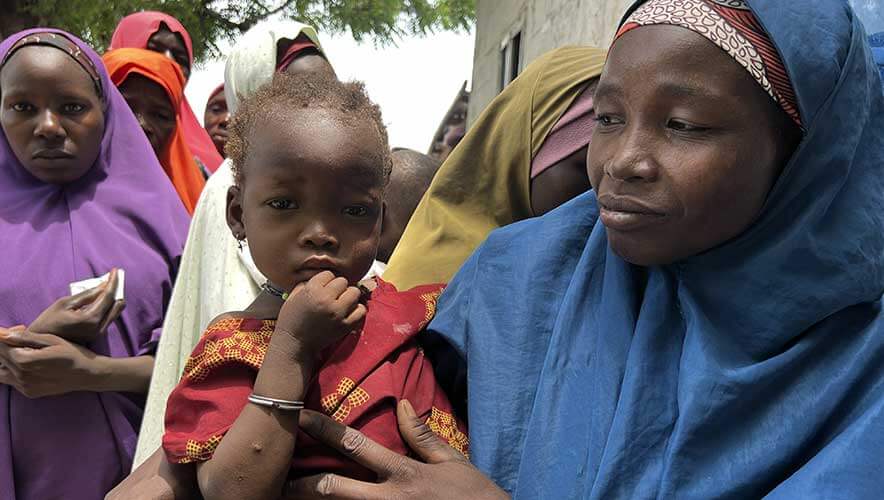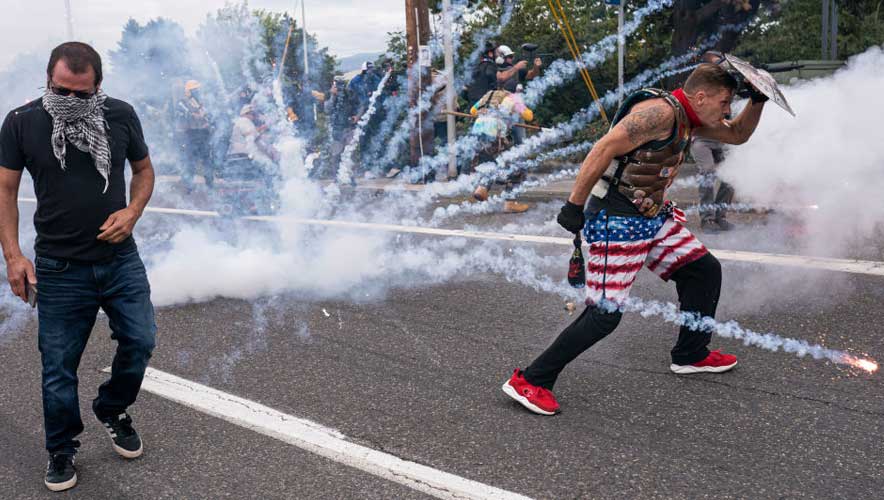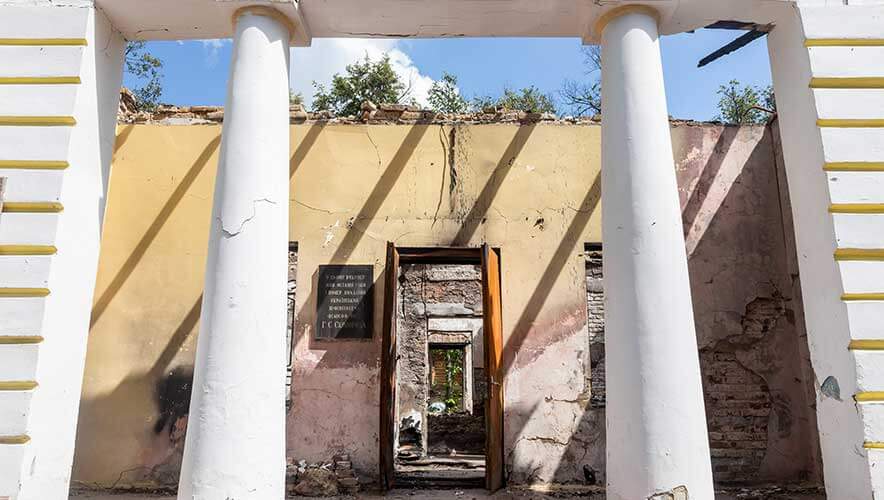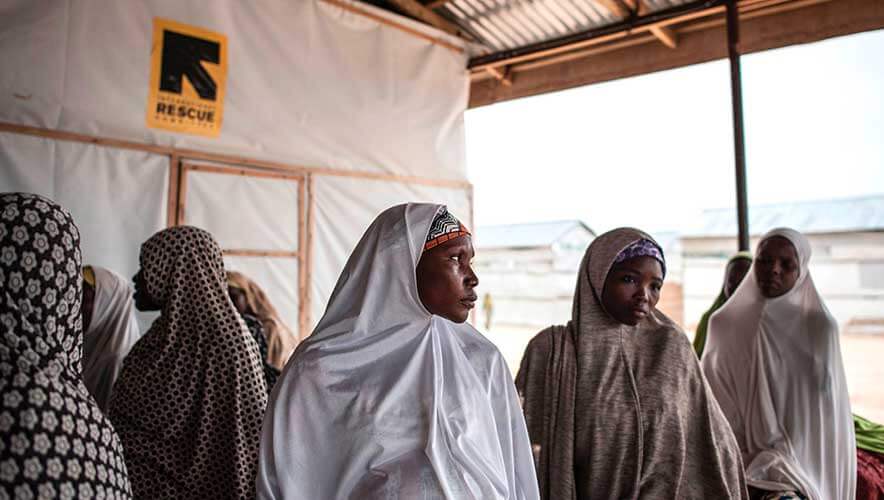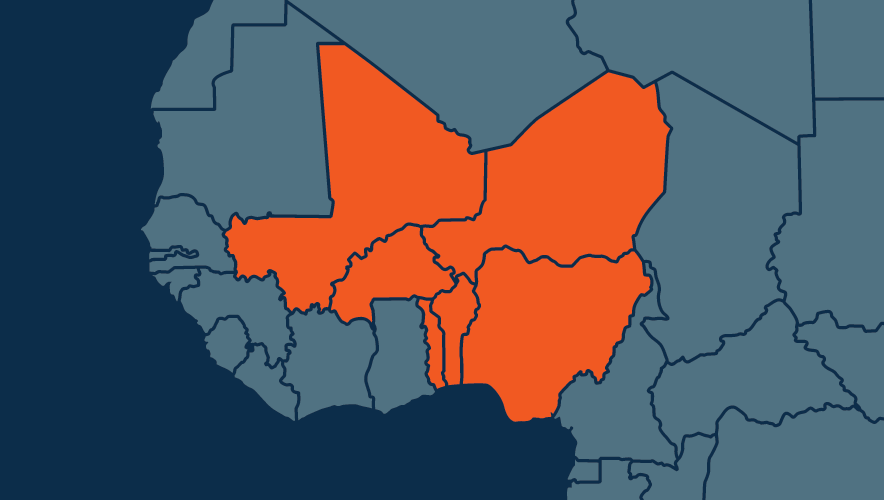Lasting Peace and Stability Require Engagement with Communities and Local Leaders
As the ongoing violence in the Middle East reiterates, terrorism continues to be a serious global threat affecting the lives and livelihoods of people all over the world. Over the last decades, this threat has become more diverse, dispersed, and complex. Terrorist organizations like ISIL and al Qaeda have spawned global networks of affiliates that capitalize on local divisions, weak governance, and systemic inequality. Hate and polarization have enabled the reemergence of violent right-wing extremists, while new technologies have increased the reach and deadly impact of terrorist operations.
Traditional military and security-centric approaches to dismantling terrorist organizations may diffuse the threat, but they are also inherently reactive and have reinforced cycles of violence. To effectively prevent and mitigate terrorism, we need governments, civil society, and the private sector to work together to address the conditions of instability and injustice that allow terrorist groups and ideologies to emerge and expand in the first place.
Many factors contribute to an individual’s decision to join a terrorist organization, but 2017 research by the United Nations surveying recruits to different terrorist groups in Africa highlighted two factors as critical tipping points.
The first factor is frustration with economic conditions, which was cited by more than half of individuals who joined terrorist organizations in Africa. The issue is not necessarily poverty, but lack of economic stability and opportunity. Stable and sufficient employment was cited as the most pressing need by recruits at the time of their joining a terrorist organization in 2017 and 2023, and employment was often entangled with other grievances of marginalization and economic exclusion.
Terrorist organizations are capitalizing on this economic gap in new and troublesome ways. For example, in South Africa, terrorist groups are establishing or controlling businesses to facilitate the transfer of goods and capital. In Nigeria, Boko Haram has been shown to provide start-up capital and loans to young entrepreneurs—in turn earning their favor as well as the opportunity to conceal funds, generate revenue, and hide the movement of goods and people.
The second and most prominent factor in the decision to join a terrorist organization is human rights abuses by state actors, often under the guise of countering terrorism. In the UN report, 71 percent of individuals surveyed identified government actions as the final trigger that motivated them to join a terrorist organization, such as unlawful arrests, torture, arbitrary killing, and disappearances.
Furthermore, counterterrorism laws have been widely abused by governments to target political opponents and reduce civic space, from prosecuting journalists on terrorism charges (like Philippine Nobel Prize winner Maria Ressa) to preventing remittance transfers between Somali family members to sentencing Saudi women who fought for a woman’s right to drive. The end result of such abuses is further alienating the very communities that should be our strongest allies in preventing the spread of violent extremism.
The Global Center on Cooperative Security was founded almost 20 years ago on the belief that measures to prevent and counter terrorism require partnerships between communities, governments, and the private sector. Those measures will lead to sustainable peace only when they are inclusive, human rights-based, and gender sensitive.
Centering the Roles of Women and Community Organizations
Although women and girls are disproportionally affected by terrorism and other forms of violent conflict, in many cases they are excluded from policy making and decision-making processes.
At the Global Center, we center the roles of women and community organizations in our work because we believe that we will achieve lasting peace only when we invest in communities directly affected by violence and injustice and support women as community leaders, educators, peace builders, and human rights defenders. We partner with women-led grassroots organizations and support gender-focused community initiatives that are sensitive to the instrumentalization and securitization of their efforts.
For example, we partner with a network of Moroccan women’s organizations that deliver critical legal, psychological, and vocational support to their communities, especially in relation to gender-based violence, women’s rights, and gender equity. Many of those organizations have encountered various forms of violent extremism but lack the resources, specialized knowledge, and common framework to support affected women.
To safely address this concern, we are taking two actions: we are developing the capacity of more than 120 staff and volunteers from 30 organizations and investing in local initiatives. Our objective is not to detract from the essential services these organizations already provide, but rather to expand their toolbox so they can better identify radicalization and recruitment and support women who are impacted by violent extremism.
Countering Terrorism Financing While Promoting Financial Access and Safeguarding Civic Space
Identifying and disrupting terrorism financing is critical to unraveling terrorism plots and networks. Effective measures to counter the financing of terrorism require collaboration and information sharing between public, private, and nonprofit sectors.
The Global Center connects these sectors to build effective channels for identifying risks, sharing tactical and strategic analysis, and investigating and prosecuting terrorism financiers. We have long-running capacity development programs supporting the public and private sectors in countries in the Middle East, Sub-Saharan Africa, Southeast Asia, and the Western Balkans.
We also leverage our work to foster regional and international cooperation as well as between government and the private sector. For example, in 2023 we hosted a multi-country simulation exercise that brought together law enforcement, prosecutors, and financial intelligence units with representatives from Coinbase and Western Union.
Unfortunately, at times the laws and measures to counter the financing of terrorism are misapplied or abused in a way that undermines the global financial system and hinders the work of journalists, human rights defenders, and aid organizations. Banks and remittance companies have struggled to provide timely financial services to nonprofit organizations operating in conflict zones, citing both regulatory pressures and an inability to mitigate risks where terrorist organizations may be present. In other cases, government regulations are inadequately risk based and result in overly burdensome and costly measures for private-sector and nonprofit organizations alike.
The Global Center leverages its relationships with terrorism financing experts, the private sector, and human rights defenders to develop evidence-based risk assessments, evaluate the effectiveness of measures to counter the financing of terrorism, and calibrate domestic and international policies. We provide empirical data on compliance with international standards in the Asia Pacific, compile globally recognized good practices, and explore the promise of digital assets for financial inclusion and sustainable development. In addition, we directly support civil society actors to facilitate dialogues with the private sector and government regulators in East and West Africa.
Engaging Civil Society in Improving Criminal Justice Systems
Accountable and accessible criminal justice systems that uphold human rights and the rule of law are better placed to address the drivers of violent extremism. As the UN study highlighted, violent extremism thrives where criminal justice systems are weak or corrupt, access to justice is unequal, and government responses undermine human rights. Terrorist groups capitalize on the lack of trust and grievances of affected communities in their propaganda and recruitment efforts.
The Global Center works with judges, attorneys, law enforcement, and prison and probation officers to inform national practices with international human rights standards and norms, benefiting from pro bono legal support of law firms and the expertise of former criminal justice practitioners. We help to foster relationships between these stakeholders and within civil society to nurture a broader culture of accountability and ensure that responses are nested in the appropriate context.
In Kenya, we recently completed the training of all 30,000 prison officers on addressing violent extremism and integrated this course into the curriculum for new recruits. Throughout this program, we worked closely with a Kenyan human rights organization to monitor standards and ensure compliance.
In Indonesia, our work with prison and probation services has involved a range of civil society organizations that assist in the rehabilitation and reintegration of offenders, including family support, counseling, and job placement.
Across Africa and Asia, we have invested in local violence prevention initiatives, including the establishment of a community-level early warning system in Indonesia, civil society engagement in the Bangsamoro peace process in the Philippines, rehabilitation and reintegration support to young people affected by violent extremism in Pakistan, and the development of a peace radio station and leadership program for women responding to local security challenges in the far north of Cameroon.
Where criminal justice systems are weak or corrupt, access to justice is unequal, and government responses undermine human rights, violent extremism can thrive.
Engaging Youth Leaders
To meaningfully address local grievances and instability that lead to violence, efforts must be globally informed but locally owned. Around the world, emerging youth leaders are seeking to realize positive change for their communities. However, they often struggle to access either the resources needed to scale up efforts or the networks that enable the firsthand exchange of lessons learned with regional and global counterparts.
The Global Center works to bridge this gap in two ways: by providing direct pilot funding to promising local initiatives and by fostering specialized exchanges that build a global community of practice. For example, we made a multiyear commitment to 20 Kenyan and Nigerian grassroots organizations engaged in violence prevention, economic stability, and community resilience building. This program provided space to reflect on common experiences between these two regions that are highly impacted by terrorism violence. It also shared good practices on pressing local issues such as trauma healing and reconciliation, entrepreneurship, financial literacy, youth civic participation, and gender equality.
For many partners, this was the first time they had received external funding. We continue to mentor our partners to expand their work and deepen their global networks so that the next generation benefits from deeper resilience in the face of terrorism and conflict.
The Case for Cooperation
Violent extremism and instability cannot be tackled by reactive, security-centric, government-led measures alone: they require the engagement of diverse civil society and private sector actors to ensure a broad and lasting impact.
The private sector has a key role to play in fostering more just and secure societies, by supporting the realization of the sustainable development goals, committing to the UN Guiding Principles on Businesses and Human Rights, and actively ensuring that their practices do not reinforce drivers of violence and instability.
Businesses can create entrepreneurship programs for youth, offer job placement opportunities for individuals affected by violent extremism to prevent recidivism, work with governments to disrupt terrorism financing, facilitate timely financial services in fragile and conflict zones, and leverage economic resources to promote sustainable development and corporate social responsibility.
Improving equity and inclusion in all its forms—social, economic, political—reduces escalation to violence and disruption, which should be top of mind for corporations when they consider their operating environment, business continuity, and reputation.
As the Global Center’s work shows, collaborative partnerships between the private sector and civil society can lead to innovative programs that serve those communities most affected by conflict and terrorism. The result: creating more equitable, just, and secure societies and stable and accessible business environments.
Eelco Kessels is executive director of the Global Center on Cooperative Security, a non-profit organization that works toward a more just and secure world through collaborative partnerships that address violent extremism and instability. He oversees the organization’s strategic direction, while frequently addressing the UN Security Council and General Assembly and guiding governments and private-sector entities on inclusive, human rights–based policies and practices that are globally informed and locally grounded.
